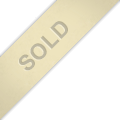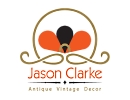Contact Seller
Jason Clarke Antiques
Tel07815 046645Please quote Antiques Atlas.


 'Uncle Tom' Crystal Set, Designed by JP Gowling
'Uncle Tom' Crystal Set, Designed by JP Gowling
 Mounted Baker Microscope
Mounted Baker Microscope
 Rare Antique Elliott Brothers Brass Thermopile
Rare Antique Elliott Brothers Brass Thermopile
 Vintage Fuller's Calculator, English, Bakelite
Vintage Fuller's Calculator, English, Bakelite
 Antique Cased Scholar's Microscope, English, Brass
Antique Cased Scholar's Microscope, English, Brass
 Victorian Recording Rain Gauge by Callaghan & Co
Victorian Recording Rain Gauge by Callaghan & Co
 Steam Engine Demonstration Model by Max Kohl
Steam Engine Demonstration Model by Max Kohl
 Baird & Tatlock brass sieve set, Endacotts
Baird & Tatlock brass sieve set, Endacotts
 Antique Expedition Equipment
Antique Expedition Equipment
 “Chemkit” Chemistry Set
“Chemkit” Chemistry Set
 Large Vintage Pantagraph, English, Brass, C.1950
Large Vintage Pantagraph, English, Brass, C.1950
 Salesman's Sample of a Pearsons B1 Fire Detector
Salesman's Sample of a Pearsons B1 Fire Detector
Non UK callers :
+44 7815 046645
Georgian Universal Equinoctial Sundial by Bate


For sale, an early Nineteenth Century rayskin cased universal equinoctial sundial by Robert Brettell Bate of London.
Comprised of a base plate supporting a silvered dial compass with two bubble levels. The level is set by means of three levelling screws which are attached around the outer circumference. The engraved hour plate is marked to the top and the inner circumference and bears the maker’s name of “Bate, London”. It is hinged to the base enabling it to be angled at various latitudes set against the scale on the secondary arm to the side.
The gnomon is also hinged within the hour plate and can be turned out for use and lain flat whilst in transit.
The maker, Robert Brettell Bate was a very high quality manufacturer of scientific instruments working in the early part of the Nineteenth Century. Born in 1782, to a family of Bankers in Stourbridge, he initially travelled to London to become a Haberdasher under his Uncle Robert Brettell. His Aunt also living in London was married to Bartholomew Sikes, famous for winning favour with The Board of Excise for his hydrometer design in 1802.
In 1804, Robert Bate married his cousin, the daughter of his aunt Mary and Bartholomew Sikes, however it was followed quite shortly with the sudden death of Sikes. Supported by his newly widowed Aunt, Bate took over Sike’s business and its Government commission and successfully persuaded the Board of Excise to adopt the “improved” hydrometer that his Father in Law had been working on before his untimely death.
At this time, the company was being run at 17 Poultry where in 1814 he became a member of the Spectacle Maker’s Company of London, by 1824 his reputation was such that he was further commissioned by the Board of Excise & Ordnance to make the new national standard Imperial measures for weight & capacity created by George IV, this event led Bate to acquire further premises at 20 and 21 Poultry. It was this Governmental relationship that underpinned his entire career, leading to an important commission from the US Mint where his Troy pound standard weight became legal standard for US coinage at the time and his instruments were also known to have been used by The East India Company, The Royal Navy, The Board of Ordnance, The Hydrographic Office and The Bank of England.
His quality of manufacture led him to receive Royal Appointments from George IV, William IV and Queen Victoria where he acted as Optician and he eventually rose to become Master of the Spectacle Maker’s Guild in 1833. He was also known to have acted for the Admiralty as its main chart agent with numerous sub agents acting below him such as his old apprentice and instrument maker to The Royal yacht Club, George Stebbing.
The final two decades of his life (the 1830’s and 40’s) were riddled with ill health probably due to the amount of work that he was undertaking. He travelled widely across the UK and abroad for health reasons but still maintained lively correspondence with his customers. Owing to its output, the business found it sometimes necessary to buy in work from other instrument makers. Later in his career, he is known to have purchased microscopes from both James Smith and Powell & Lealand but conversely it supplied others in both the regions and in London. Bate is listed as a creditor in the bankruptcy proceedings of the famous makers William Harris and also W&T Gilbert.
Bate traded from his Poultry street addresses for the majority of his career although he moved to number 33 Royal Exchange in 1846 until his death shortly after in 1847. Bate’s widow continued to run the business until 1850 whereafter the Excise work was taken over by Dring & Fage and the Admiralty Chart side of the business went to Bate’s former employee, John Dennett Potter.
A good honest example of an iconic instrument by a top London maker. Circa 1820
SellerJason Clarke Antiques
View all stock from
Jason Clarke Antiques

 Private dealer
Private dealer
By appointment only
Newbury
Berkshire
Tel : 07815 046645
Non UK callers : +44 7815 046645
Comprised of a base plate supporting a silvered dial compass with two bubble levels. The level is set by means of three levelling screws which are attached around the outer circumference. The engraved hour plate is marked to the top and the inner circumference and bears the maker’s name of “Bate, London”. It is hinged to the base enabling it to be angled at various latitudes set against the scale on the secondary arm to the side.
The gnomon is also hinged within the hour plate and can be turned out for use and lain flat whilst in transit.
The maker, Robert Brettell Bate was a very high quality manufacturer of scientific instruments working in the early part of the Nineteenth Century. Born in 1782, to a family of Bankers in Stourbridge, he initially travelled to London to become a Haberdasher under his Uncle Robert Brettell. His Aunt also living in London was married to Bartholomew Sikes, famous for winning favour with The Board of Excise for his hydrometer design in 1802.
In 1804, Robert Bate married his cousin, the daughter of his aunt Mary and Bartholomew Sikes, however it was followed quite shortly with the sudden death of Sikes. Supported by his newly widowed Aunt, Bate took over Sike’s business and its Government commission and successfully persuaded the Board of Excise to adopt the “improved” hydrometer that his Father in Law had been working on before his untimely death.
At this time, the company was being run at 17 Poultry where in 1814 he became a member of the Spectacle Maker’s Company of London, by 1824 his reputation was such that he was further commissioned by the Board of Excise & Ordnance to make the new national standard Imperial measures for weight & capacity created by George IV, this event led Bate to acquire further premises at 20 and 21 Poultry. It was this Governmental relationship that underpinned his entire career, leading to an important commission from the US Mint where his Troy pound standard weight became legal standard for US coinage at the time and his instruments were also known to have been used by The East India Company, The Royal Navy, The Board of Ordnance, The Hydrographic Office and The Bank of England.
His quality of manufacture led him to receive Royal Appointments from George IV, William IV and Queen Victoria where he acted as Optician and he eventually rose to become Master of the Spectacle Maker’s Guild in 1833. He was also known to have acted for the Admiralty as its main chart agent with numerous sub agents acting below him such as his old apprentice and instrument maker to The Royal yacht Club, George Stebbing.
The final two decades of his life (the 1830’s and 40’s) were riddled with ill health probably due to the amount of work that he was undertaking. He travelled widely across the UK and abroad for health reasons but still maintained lively correspondence with his customers. Owing to its output, the business found it sometimes necessary to buy in work from other instrument makers. Later in his career, he is known to have purchased microscopes from both James Smith and Powell & Lealand but conversely it supplied others in both the regions and in London. Bate is listed as a creditor in the bankruptcy proceedings of the famous makers William Harris and also W&T Gilbert.
Bate traded from his Poultry street addresses for the majority of his career although he moved to number 33 Royal Exchange in 1846 until his death shortly after in 1847. Bate’s widow continued to run the business until 1850 whereafter the Excise work was taken over by Dring & Fage and the Admiralty Chart side of the business went to Bate’s former employee, John Dennett Potter.
A good honest example of an iconic instrument by a top London maker. Circa 1820
Price The price has been listed in British Pounds.
Conversion rates as of 21/NOV/2024. Euro & Dollar prices will vary and should only be used as a guide.
Always confirm final price with dealer. Sold
Category Scientific Antiques
Period Regency Antiques
Material Brass
Origin English
Maker Robert Brettell Bate
Item code as542a631
Status Sold
£0 
$0.00 
€0.00 

$

€

Conversion rates as of 21/NOV/2024. Euro & Dollar prices will vary and should only be used as a guide.
Always confirm final price with dealer. Sold
View all stock from
Jason Clarke Antiques

 Private dealer
Private dealerBy appointment only
Newbury
Berkshire
Tel : 07815 046645
Non UK callers : +44 7815 046645
You may also be interested in
 'Uncle Tom' Crystal Set, Designed by JP Gowling
'Uncle Tom' Crystal Set, Designed by JP Gowling
 Mounted Baker Microscope
Mounted Baker Microscope
 Rare Antique Elliott Brothers Brass Thermopile
Rare Antique Elliott Brothers Brass Thermopile
 Vintage Fuller's Calculator, English, Bakelite
Vintage Fuller's Calculator, English, Bakelite
 Antique Cased Scholar's Microscope, English, Brass
Antique Cased Scholar's Microscope, English, Brass
 Victorian Recording Rain Gauge by Callaghan & Co
Victorian Recording Rain Gauge by Callaghan & Co
 Steam Engine Demonstration Model by Max Kohl
Steam Engine Demonstration Model by Max Kohl
 Baird & Tatlock brass sieve set, Endacotts
Baird & Tatlock brass sieve set, Endacotts
 Antique Expedition Equipment
Antique Expedition Equipment
 “Chemkit” Chemistry Set
“Chemkit” Chemistry Set
 Large Vintage Pantagraph, English, Brass, C.1950
Large Vintage Pantagraph, English, Brass, C.1950
 Salesman's Sample of a Pearsons B1 Fire Detector
Salesman's Sample of a Pearsons B1 Fire Detector








